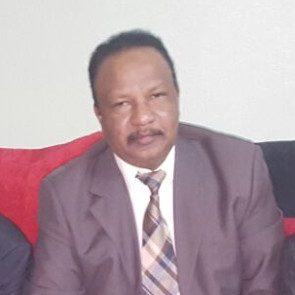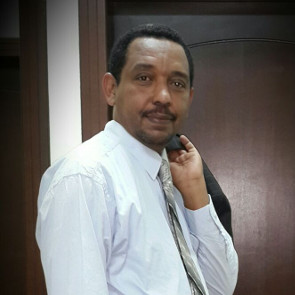On 11 July, the Saudi government deported three Sudanese nationals to their home country despite the high risk that Sudanese authorities will gravely mistreat, or even torture, them. The Sudanese National Intelligence Service (NISS) detained the three upon their arrival and is now holding them at their headquarters in Khartoum North.

Elgassim Mohammed Seed Ahmed and Elwaleed Imam Hassan Taha are human rights defenders who co-founded an organization called Abna’ al-Sahafa, or “Citizens of al-Sahafa”, in the Sudanese capital of Khartoum. The organization provides assistance and basic services for Sudanese citizens in need. After founding Abna’ al-Sahafa, Ahmed moved to Saudi Arabia in 1998 and Taha followed in 2013, but the two continued providing logistical support for the organization, especially with the acquisition of medicines after a drastic price increase on medicine in Sudan. The two were politically active on social media, supporting the popular peaceful protests in Sudan that occurred in November and December 2016. The protests were in response to the Sudanese government’s new economic austerity policies that significantly increased the prices of many goods, including medicines, fuel, transport, and electricity.
Around 5:00 PM on 21 December 2016, Saudi authorities dressed in civilian clothing detained Ahmed and Taha outside their office in Riyadh where they worked as accountants. The officials took them to their respective homes and searched both properties. According to Ahmed’s brother and Taha’s wife, the security personnel did not provide a warrant for the search or the men’s detention. They also prevented Taha from communicating with his wife although she was in the next room, only telling her that her husband would be returned after 40 minutes of questioning. After the searches, Ahmed called his wife for 30 seconds and told her that he was okay and that the Sudanese government had seemingly lodged a complaint against him and Taha.
The Saudi officials took the two to an undisclosed location and detained them incommunicado until 13 February, at which time they were finally able to meet with their families. They reported that members of the Saudi secret police, al Mabahith, interrogated them at least eight times during their detention and threatened them with imprisonment and deportation. Authorities placed them in solitary confinement until 6 March, at which time they were placed in a cell together. On 5 June, authorities blindfolded and handcuffed the two and forced them to sign documents they were not permitted to read. Two days later, the authorities seized their passports.

On 26 December 2016, in a separate case, Saudi officials arrested Alaa Aldin Daffalla al-Difana at his apartment in Mecca. Al-Difana is a journalist and member of the National Umma Party, an opposition party in Sudan, who immigrated to Saudi Arabia in 2012 to escape judicial harassment. Authorities arrested him for his comments on his Facebook page that criticized the Sudanese government’s medical policies and corruption within the Sudanese government. On his social media accounts, he also supported the protests in Sudan that erupted in November and December.
After arresting al-Difana, authorities held him incommunicado between 26 December and 25 January, at which time he was allowed only two brief phone calls with family. They have not heard from him since.
Having been deported back to Sudan from Saudi Arabia, the three are now in the custody of the NISS and are prisoners of conscious who were arbitrarily detained for their political activism. As the NISS has broad powers under its mandates that give it nearly unlimited discretion and that grants it impunity, the men are at great risk of torture and other mistreatment.
The Saudi government’s arbitrary detention of the three men and their subsequent deportation to Sudan is a clear case of refoulement. As the three were refugees seeking asylum from political persecution, they are protected from being forcibly returned to their home country. The Saudi government should ensure that refugees seeking asylum for any reason in the kingdom are protected. To ensure that no further cases of refoulement take place, Saudi Arabia should become a signatory to the UN Convention Relating to the Status of Refugees. On the other hand, the Sudanese government should immediately and unconditionally release the three men and ensure that citizens are not arbitrarily detained for their political beliefs or utilizing their right to the freedom of expression. In order to ensure the government’s fidelity to human rights standards, the Sudanese government should further hold the NISS accountable for any and all violations of human rights, including its use of torture on detainees.
Alex DiBell is an Advocacy Intern at ADHRB.
Photo courtesy of Frontline Defenders.





